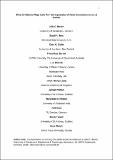Files in this item
What do national flags stand for? An exploration of associations across 11 countries
Item metadata
| dc.contributor.author | Becker, Julia C. | |
| dc.contributor.author | Butz, David A. | |
| dc.contributor.author | Sibley, Chris G. | |
| dc.contributor.author | Barlow, Fiona Kate | |
| dc.contributor.author | Bitacola, Lisa M. | |
| dc.contributor.author | Christ, Oliver | |
| dc.contributor.author | Khan, Sammyh S. | |
| dc.contributor.author | Loeng, Chan-Hoong | |
| dc.contributor.author | Pehrson, Samuel | |
| dc.contributor.author | Srinivasan, Narayan | |
| dc.contributor.author | Sulz, Aline | |
| dc.contributor.author | Tausch, Nicole | |
| dc.contributor.author | Urbanska, Karolina | |
| dc.contributor.author | Wright, Steve C. | |
| dc.date.accessioned | 2016-11-21T13:30:10Z | |
| dc.date.available | 2016-11-21T13:30:10Z | |
| dc.date.issued | 2017-04-01 | |
| dc.identifier | 247293145 | |
| dc.identifier | f4efe247-ff85-4f28-ac0a-fb32bbea0f65 | |
| dc.identifier | 85018255739 | |
| dc.identifier | 000399920200005 | |
| dc.identifier.citation | Becker , J C , Butz , D A , Sibley , C G , Barlow , F K , Bitacola , L M , Christ , O , Khan , S S , Loeng , C-H , Pehrson , S , Srinivasan , N , Sulz , A , Tausch , N , Urbanska , K & Wright , S C 2017 , ' What do national flags stand for? An exploration of associations across 11 countries ' , Journal of Cross-Cultural Psychology , vol. 48 , no. 3 , pp. 335-352 . https://doi.org/10.1177/0022022116687851 | en |
| dc.identifier.issn | 0022-0221 | |
| dc.identifier.other | ORCID: /0000-0002-9471-0673/work/46362108 | |
| dc.identifier.other | ORCID: /0000-0002-9259-6408/work/60196847 | |
| dc.identifier.uri | https://hdl.handle.net/10023/9858 | |
| dc.description.abstract | We examined the concepts and emotions people associate with their national flag, and how these associations are related to nationalism and patriotism across 11 countries. Factor analyses indicated that the structures of associations differed across countries in ways that reflect their idiosyncratic historical developments. Positive emotions and egalitarian concepts were associated with national flags across countries. However, notable differences between countries were found due to historical politics. In societies known for being peaceful and open-minded (e.g., Canada, Scotland), egalitarianism was separable from honor-related concepts and associated with the flag; in countries that were currently involved in struggles for independence (e.g., Scotland) and countries with an imperialist past (United Kingdom), the flag was strongly associated with power-related concepts; in countries with a negative past (e.g., Germany), the primary association was sports; in countries with disruption due to separatist or extremist movements (e.g., Northern Ireland, Turkey), aggression-related concepts were not disassociated; in collectivist societies (India, Singapore), obedience was linked to positive associations and strongly associated with the flag. In addition, the more strongly individuals endorsed nationalism and patriotism, the more they associated positive emotions and egalitarian concepts with their flag. Implications of these findings are discussed. | |
| dc.format.extent | 18 | |
| dc.format.extent | 702541 | |
| dc.language.iso | eng | |
| dc.relation.ispartof | Journal of Cross-Cultural Psychology | en |
| dc.subject | National flags | en |
| dc.subject | Egalitarianism | en |
| dc.subject | Power | en |
| dc.subject | Emotions | en |
| dc.subject | Nationalism | en |
| dc.subject | Patriotism | en |
| dc.subject | BF Psychology | en |
| dc.subject | NDAS | en |
| dc.subject.lcc | BF | en |
| dc.title | What do national flags stand for? An exploration of associations across 11 countries | en |
| dc.type | Journal article | en |
| dc.contributor.institution | University of St Andrews.School of Psychology and Neuroscience | en |
| dc.identifier.doi | 10.1177/0022022116687851 | |
| dc.description.status | Peer reviewed | en |
| dc.identifier.url | http://journals.sagepub.com/doi/suppl/10.1177/0022022116687851 | en |
This item appears in the following Collection(s)
Items in the St Andrews Research Repository are protected by copyright, with all rights reserved, unless otherwise indicated.

